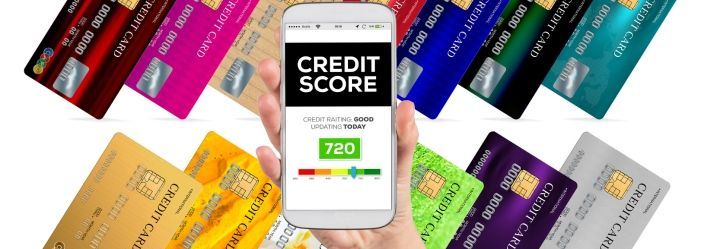Last Updated: March 19, 2024
Will it Affect my Credit Score?

Disclaimer: We are not qualified legal or tax professionals and are not giving advice. Always speak with a qualified professional before making any legal or financial decisions.
Congratulations on paying off your credit card debt! This significant financial milestone not only brings a sense of relief but also marks the beginning of a new chapter in your credit journey.
Many wonder, 'How soon will my credit score reflect this achievement?' The answer varies, as credit scores are a reflection of your financial behavior over time, including your credit utilization ratio, payment history, and more.
Beyond the immediate impact, it's crucial to consider how to manage your credit moving forward. Should you keep the card? How can you use credit responsibly to ensure your score continues to rise?
This guide dives into what happens after you pay off your credit card debt, offering insights into how and when your credit score might change, and providing tips for effective credit management to secure your financial future.
Want direct advice from a debt specialist without the article? Click here for a free consultation.
The average credit score is 695
If you have an average credit score (average meaning lenders don't think it's good or bad), then the moment that you turn 18 years of age, then this is when your FICO score will be created and used by all major lenders to determine what kind of rates they're going to quote to you.
And it can take up to 7-10 years for your credit score to settle down and show some stability so that you can expect them to more accurately predict how much risk a lender will take.
Credit scores are a number based on a mathematical evaluation of credit history.
Credit history is made up of five parts:
- Payment History
- Credit Utilization
- Debt Amount
- Length of Credit History
- Types of Credit
Learn more about credit score factors by reading our article The 5 Main Credit Score Factors You Need to Know
This information is collected from various sources such as creditors or other agencies that have given different types of loans to consumers that have been reported as being paid off successfully by the borrower. An in-depth exploration of these credit score factors can be found in the guide on the 5 main credit score factors.
A typical score ranges from 300-850 points and reflects your level as a risk for lenders, with higher scores indicating lower risks.
The three major companies in charge of collecting this data:
All use different methods to track you financially which results in slight differences between companies.
Learn more by reading Why Your Equifax Score is Lower than TransUnion
Tips for Paying Off Credit Card Debt
Before paying off your credit cards, here are some tips to make the process easier:
- Make a budget and free up cash to put towards debt repayment by reducing expenses. Cut out non-essentials like dining out, entertainment, etc. You may have to make some sacrifices, but it will be worth it in the long run.
- Try the debt avalanche or debt snowball methods to pay off cards strategically. With the debt avalanche method, you pay minimums on all cards except the one with the highest interest rate, which you attack aggressively. With the debt snowball method, you pay minimums on all cards except the one with the lowest balance, which you pay off first before moving to the next lowest balance.
- Consider balance transfer cards to move balances from high APR cards to a 0% intro APR for 12-18 months. This buys you time to pay down the balances interest-free without that burden added on. Make sure to have a payoff plan so you don't end up with new interest charges down the road.
- Look into debt management programs offered by non-profit credit counseling agencies. They can negotiate lower interest rates on your cards and help you repay debt on an organized monthly payment plan. This consolidates payments and often saves money over time.
- As a last resort, consider debt settlement where the credit card company agrees to settle for less than the full amount owed. This can save a lot of money in the short-term but will damage your credit, so only use if absolutely necessary.
How do you check your credit score?
Credit scores can be found by accessing your Equifax credit report.
You should check your Equifax credit report (and other credit agency reports) once a year to make sure all of the items on it are accurate and up-to-date.
Your Equifax credit report is the only comprehensive, nationwide, and fully guaranteed way to start securing and protecting your financial future today.
There are also a number of companies that offer free credit score services, like CreditKarma.com.
You can also purchase your credit score from annualcreditreport.com for about $8 as long as you identify yourself as someone with a previously "good" credit history.
General guidelines
- Below 30% utilization is good
- Above 30% could be considered worrisome
- High utilization (over 50%) can drastically hurt your score
When you pay off credit cards, your utilization ratio improves, so your score goes up. The higher your utilization was before paying off debt, the more your score can increase.
For the maximum score boost, get your utilization as low as possible by paying cards down to zero. But even if you can't pay in full, paying off some of the balance to get utilization below 30% will help.
Keeping utilization low going forward is also important. You can do this by spending minimally, paying off balances each month, and asking for credit limit increases on cards you use responsibly.
If you have a lot of debt, your credit score will be lower
It's true, debt appears on your credit history and can affect your credit score.
Debt is a big factor in the calculation of your personal creditworthiness, so an increase or decrease in debt can impact how much lending you are qualified for and what interest rates you may be charged for borrowing money.
When lenders look at someone's debt to income ratio and total debt load, they measure whether they're current on their mortgage payments and other loans, as well as any defaults or late payments – that way it'll be easier to predict if the debtor is likely to pay them back or not.
Borrowers with higher debts typically have lower credit scores because this means more of their salary goes towards paying off what they owe instead of building up available cash savings.
Speak to a debt specialist today and find out how to reduce your debt. We’ve helped thousands of customers with our debt relief program.
Your credit score can go up after paying off the card balance
Yes. According to the Federal Reserve, if you make your credit card payments on time, this can improve your credit score.
Bills can have a negative effect on your credit score because they may be reported as being overdue to the credit bureaus if they haven't been paid off in six months or more.
The ideal scenario is to always make all the payments on time, and for this to happen your credit score can go up. The answer here is more about creditworthiness than credit score.
The idea of the "ideal scenario" is that you pay off your cards in full each month, which will lead to establishing a long-term good history with lenders, which will allow your FICO scores to increase over time up until it reaches the statistical scoring system for measuring the value of an individual's creditworthiness.
For someone who normally spends money on their credit card, it's actually beneficial to pay off the balance each month.
When more than 30% of your income goes towards paying for your debt, the average person is six times as likely to have some type of serious financial problem, including being unable to meet basic needs for one’s self or family.
Paying off one's credit card balance each month represents an extremely low cost for that individual person- give up just a couple hours worth of minimum wage work per year and they can wipe out their debt annually.
A higher credit score could mean more opportunities for loans or mortgages at better rates
A higher credit score generally translates into lower interest rates when getting a mortgage or other loan.
Lower interest rates generally translate into savings someone can invest or spend elsewhere by virtue of having to borrow less money.
The idea is that the FICO scoring makes it much tougher when you're trying to buy a house when your credit history is spotty versus if you have better than average credit and so in this case, bad credit really does cost in practice--though everyone isn't affected in the same way.
You should also avoid opening too many new accounts
This is mainly because lenders are cautious about people who open multiple accounts without using them regularly - they see these types of people as being more likely to default on their payments.
The more accounts on your credit report, the more points are being docked off of your score. Credit card balances are often one of the biggest factors in lowering credit scores.
However, as long as you are able to keep your balance below the credit limit then opening an account won't have any effect on your credit score. You should be more aware of the total amount of debt you are taking on with each credit card.
FAQs
Conclusion
If you're looking to improve your credit score, paying off credit cards might be a good start. Find out how much it can increase and what other factors affect the number. In fact, there are specific strategies that can help boost your score substantially.
Make sure you understand the different types of score ranges so that you know where yours falls in comparison to others.
Paying off debts is not always as simple as it sounds because there are many variables involved; but if done properly, this one step could make all the difference when applying for loans or purchasing items on credit.
If you are struggling with overwhelming debt and want to explore your debt relief options, Pacific Debt Relief offers a free consultation to assess your financial situation. Our debt specialists can provide objective guidance relevant information and support to help find the right debt relief solution.
*Disclaimer: Pacific Debt Relief explicitly states that it is not a credit repair organization, and its program does not aim to improve individuals' credit scores. The information provided here is intended solely for educational purposes, aiding consumers in making informed decisions regarding credit and debt matters. The content does not constitute legal or financial advice. Pacific Debt Relief strongly advises individuals to seek the counsel of qualified professionals before undertaking any legal or financial actions.
✔ Accredited by Better Business Bureau with BBB A+ rating (4.92 rating and 1,700+ reviews)
✔ 7.5 star rating by BestCompany.com (over 2300+ client reviews)
✔ 4.8 star rating by TrustPilot (over 2200+ verified consumer reviews)
✔ ConsumerAffairs.com Accredited (over 500+ verified reviews with an average rating of 5 stars)
✔ A Top 10 Rated Compan by TopTenReviews.com , ConsumersAdvocate.com and Top10debtconsolidation.com
✔ 4.6 star rating by Google (400+ client reviews)
✔ 100% rating by SuperMoney (8 client reviews)
Reduce Your Credit Card Debt By Up to Half

BBB Reviews | 4.9/5.0 Rating









 Do Not Sell My Personal Information
Do Not Sell My Personal Information